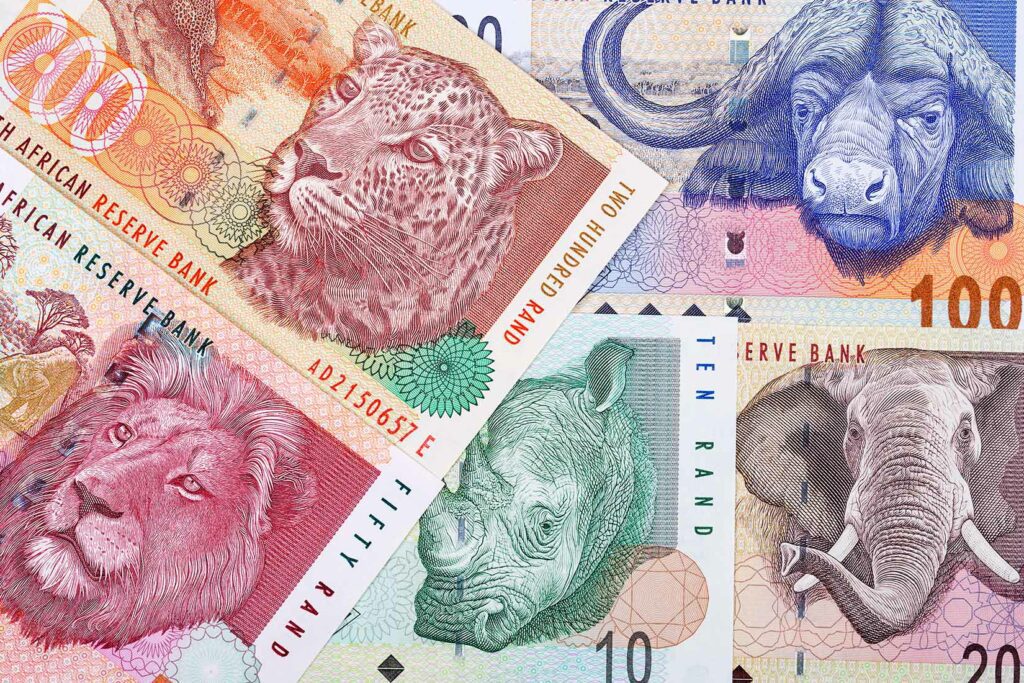Africa’s unmatched population growth is well known. By 2025, the continent will be home to 1.5 billion people (or almost 20% of the world’s population). By 2050 that number swells to almost 2.5 billion (or more than 25% of the world’s population). Sub-Saharan Africa’s population is growing at 2.7% per year—more than double that of South Asia (1.2%) and Latin America (0.9%). For perspective, Africa is adding the population of France or Thailand every two years. What at is not so well understood, however, is the growth in Africa’s digital literacy, and the role that fintech will play to unlock the continent’s potential.
June 3, 2022
Africa’s fast-growing telecommunications infrastructure underpins its growth in digital literacy. In 2017, there were 730 million mobile subscriptions in Africa, up from just over 700 million in 2016. This represents a penetration rate of around 80 percent, which is among the highest in the world. The growth in mobile subscriptions has been matched by a boom in internet usage. In 2017, there were more than 390 million internet users in Africa, up from less than 200 million in 2013. This represents a compound annual growth rate of nearly 20 percent. The increase in internet usage has been driven by the spread of mobile broadband networks and the falling cost of data services.
The expansion of telecoms infrastructure is playing an important role in promoting economic development and social inclusion on the continent. It is enabling African businesses to connect to global markets and tap into new sources of capital and knowledge. For individuals, it is providing access to essential services such as education and healthcare, as well as opportunities for social interaction and entertainment.
In order to realize the full potential of this digital transformation, however, African governments need to do more to promote competition in the telecoms sector and ensure that everyone has access to affordable broadband services.
The continent’s youthful population creates a fertile environment for fintech adoption. Africa’s population is the youngest of any continent with about 40% of the population aged 15 years or below. Global trends show that fintech adoption is significantly higher among millennials and Generation Z—hence, demographic factors favor Africa’s fintech growth.
Africa’s large underbanked population—estimated at over 40% of the adult population or close to 460 million people—also provides a large untapped market for next-generation banking services provided through fintech solutions on mobile phones. Africa already has the largest volume of mobile money transactions globally—in 2020 they were 374% more than South Asia, the second-largest market for mobile money. Fintechs are helping to redefine banking by providing the informal trading sector with a means to make and accept payments where the traditional banking system presented barriers to entry.
Investors have recognized the opportunities that these macro trends represent. Per Partech, technology funding in Africa grew faster than any other region globally in 2021, reaching a total of $5.2 billion. Africa attracted twice as much activity in 2022 than in 2020, with 681 rounds, and the amount invested more than tripled. Fintechs attracted an outsized portion of funding with that sector receiving 63% of total investments compared to 25% the year before. KPMG has noted 2021 as a record year for fintech investment in Africa, with over US$1.6 billion invested across 153 deals, two times the value of 2020 and representing a 50% increase in transaction numbers.
Our sub-Saharan Africa-focused private equity fund, 1K Africa, is noting greater financial inclusivity through our fintech investments. In March 2019, we invested in Pay@, a leading payments aggregator based in Stellenbosch, South Africa. Pay@ is one of Southern Africa’s leading payment solutions providers, trusted by prominent South African organizations to optimize their billing and payment processes. Pay@ offers a convenient transaction channel bridging the gap between sophisticated financial services organizations and locally underbanked populations. The platform permits virtually any payment method and tender type to be integrated and leverages its accurate real-time validation processes, reduced reconciliation errors and track record of superior service. By providing access to a full network of payment solutions and financial services, Pay@ improves the standard of living of its customers by providing the essential tools to pay for services including as insurance, education, healthcare, and housing, which may be unattainable without them. Pay@ is improving access to secure financial services and payment facilities, especially for underbanked and rural populations in under-developed communities. Paymenow
In 2022, 1K Africa invested in diversified digital company, Digico. As part of our Digico investment, we acquired an interest in a remarkable financial wellness company, Paymenow. The company provides an alternative to expensive payday lenders through affordable, real-time access to cash. With proprietary algorithms underpinning its IP backbone, Paymenow brings financial inclusion with dignity to thousands on the African continent. Many in Africa live paycheck to paycheck. With no bank accounts and no access to credit (other than “informal lenders” who often charge exorbitant interest rates), the only source of income is salary. In South Africa, approximately 50% of workers seek informal loans between their payout days. Only one out of 10 have cash left after paying bills. Paymenow allows employees early access to already earned wages by “cashing out” a percentage of their earnings. The company promotes financial education through gamification modules directly on its app to encourage savings and responsible use of the service. The solution integrates directly into employer payroll systems and, as Paymenow facilitates payments, does not affect an employer’s cash flow. Paymenow is significantly more affordable than informal lending. Benefits to the employer include increased staff retention, engagement and productivity including a reduction in absenteeism, theft and fraud. Paymenow is having a profound impact in the lives of thousands.
Also within Digico sits M4JAM. Earlier in 2022, M4JAM was nominated as a “Digital Transformation” finalist by Africa Tech Week. This award recognizes companies whose innovations positively disrupt the status quo in an industry. In addition, M4JAM was a finalist in the social impact category of the Diversity in Tech Awards. M4JAM is a gig technology company that enables brands, start-ups, SMEs, or big businesses, as well as NGOs and governments, to connect directly with a staff-on-demand community of Southern Africans. This community is referred to as “jobbers.” M4JAM uses its platform to facilitate micro-jobbing and education. With their smartphones in hand, a jobber will receive a direct payment into his or her mobile wallet as a reward for completing tasks that M4JAM breaks down into smaller micro jobs such as surveys, education, advertising, and more. With the aim of the company being to pass economic opportunities to people on the street, M4JAM has had a significant impact on rural communities in South Africa, particularly through improving work efficiency and providing financial incentives. M4JAM has attracted the attention of the youth (under 25s) in South Africa for jobs. Considering the rising youth unemployment rate in South Africa, which currently sits at 65.5%, M4JAM is creating employment opportunities for the youth. The income received helps decrease poverty as well as improve access to food, healthcare, education, and housing.
Another example of fintechs accelerating prosperity in Africa is 1K Africa portfolio company Sybrin. With clients in many African countries and internationally, Sybrin is a leading software solution provider helping companies digitally transform their business processes. Sybrin builds solutions and digital assets, developed in-house, for the financial services, insurance, telco and ICT sectors, thereby delivering financial inclusion. With over 200 employees, 28% of which are female, Sybrin invests in employee training and upliftment, contributing to the growth of financial inclusion. Sybrin is also a proud donor of the GirlCode initiative and, together with the contributions from other organizations, GirlCode last year was able to make the transition from in-person classes to building an online coding academy that enables young girls and women to take various courses ranging from an introduction to the cloud, web development, and app development. Sybrin also supports various philanthropic initiatives in South Africa. Its reach extends well beyond job creation. The power of technology, innovation and digital transformation is almost limitless. As the world becomes increasingly digital, financial technology (or “fintech”) is playing an increasingly important role in our lives. Fintech has the potential to empower individuals and communities by providing access to financial services that might otherwise be unavailable or too expensive. For example, fintech can help people in developing countries connect to the global economy, access credit, and save money. In developed countries, fintech can make it easier for people to manage their finances and make informed financial decisions. Specifically, digitalization and fintech can empower millions of people as savers, lenders, borrowers, investors, and taxpayers, while enabling their full participation as consumers in Africa’s rapidly modernizing economies.
President, CEO and Co-Founder, 1K Africa
Co-Founder & Chairman, FLC Credit Partners & Family Legacy Capital
DISCLAIMER:
The opinions and views expressed herein are solely those of the author and do not necessarily represent the view(s) of any affiliated institution or organization including without limitation 1K Africa, Family Legacy Capital Credit Management, LLC, Family Legacy Capital Management, LLC, and any investment fund, entity or vehicle managed by or affiliated or associated with any of them.

